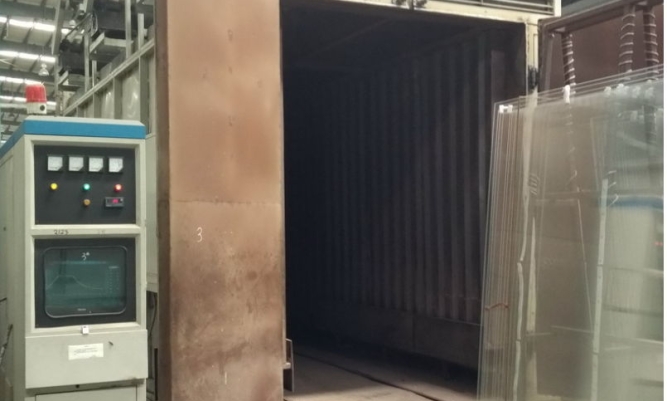

Heat Soaked Thermally Tempered Glass (HST) is a type of glass product that homogenizes tempered glass containing nickel sulfide impurities through a specific heat treatment process.
This treatment can significantly reduce the risk of self explosion caused by the phase transition of nickel sulfide impurities during the use of tempered glass. The production process of homogeneous glass mainly includes three stages: heating, insulation, and cooling.
During the heating stage, the glass is heated from ambient temperature to 280 ℃, while the temperature inside the furnace may exceed 320 ℃. The insulation stage requires the glass surface temperature to be maintained at 290 ℃± 10 ℃ for at least 2 hours to ensure that the alpha phase of nickel sulfide impurities can completely transform into the low-temperature stable beta phase. Finally, during the cooling phase, the glass temperature gradually decreases to ambient temperature, while controlling the cooling rate to reduce damage caused by thermal stress.
The application of homogeneous glass is very extensive, not only in the field of building safety glass, but also in the manufacturing of optical devices, optical fibers, building glass, automotive glass, chemical containers, experimental instruments, electronic devices, insulators, etc.
In addition, homogeneous glass also has applications in the medical field, such as medical devices, drug packaging, and medical fibers.
In the field of environmental protection, homogeneous glass can be used to manufacture renewable energy equipment such as solar panels and photovoltaic power generation devices.



